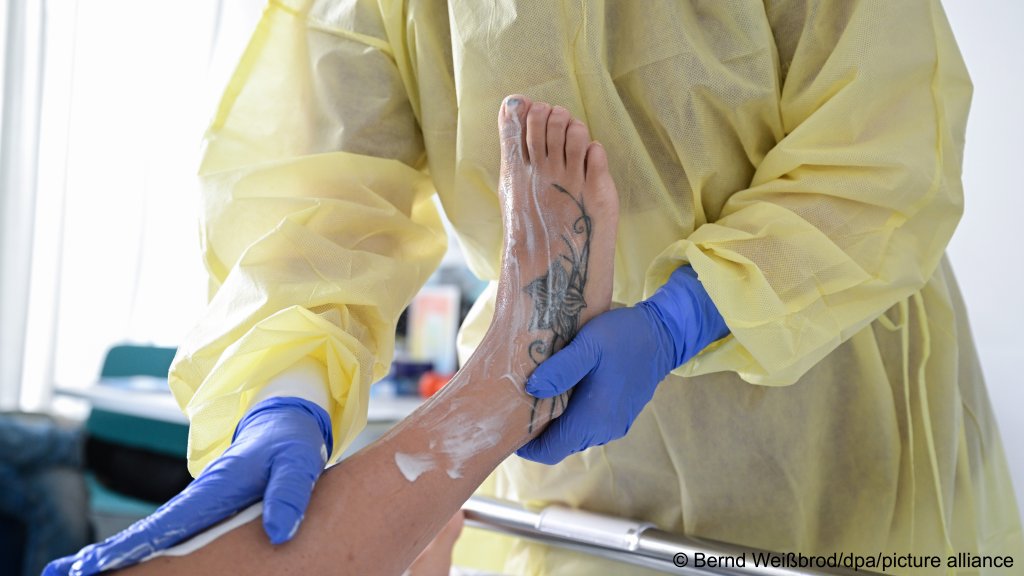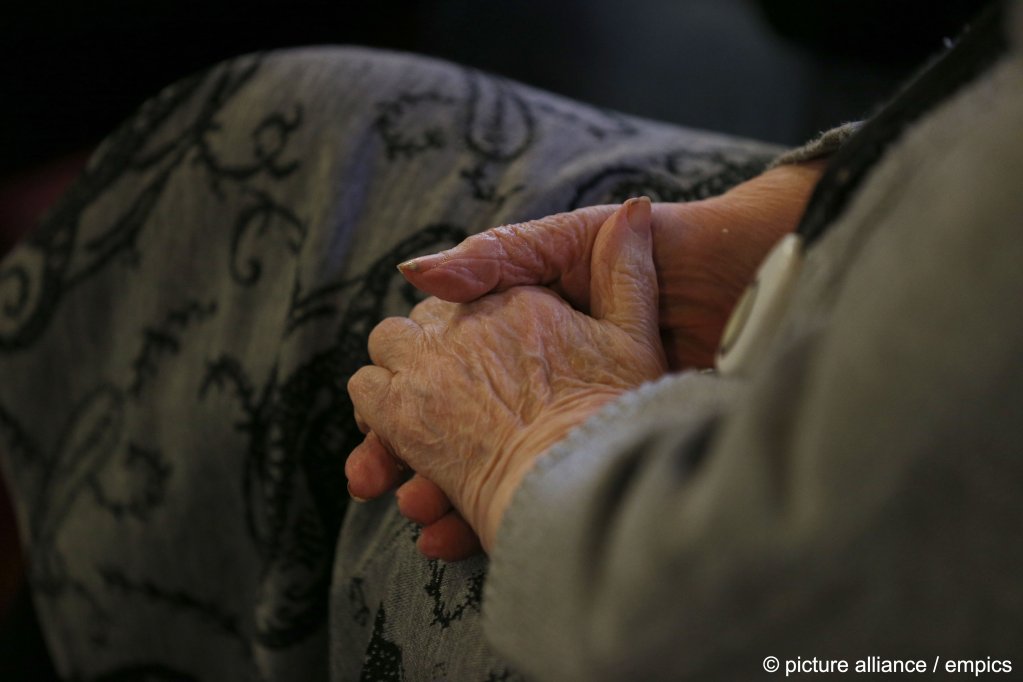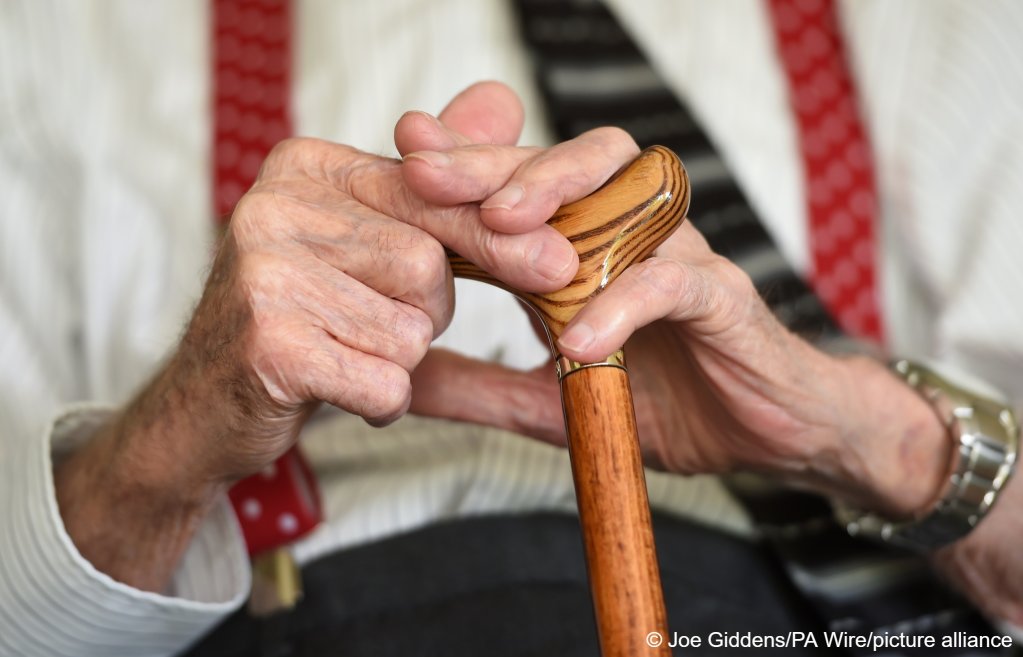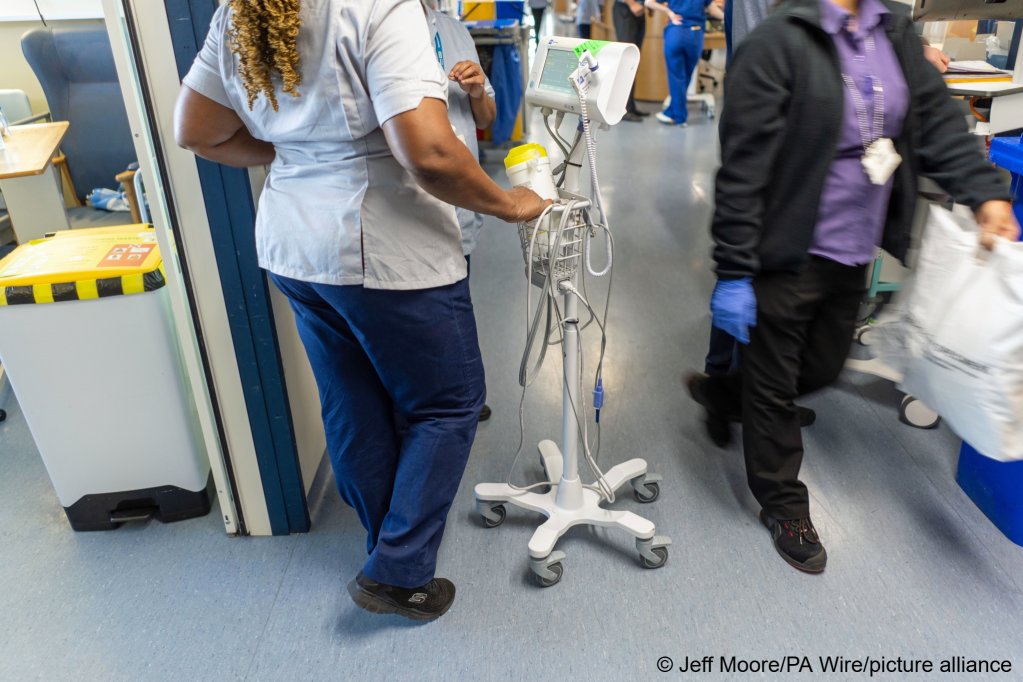A new study, by Britain’s public service union UNISON, has found that some migrant care workers are being exploited by rogue employers, including having to share beds, sleep rough or pay huge fees for the right to work.
Britain’s public service union UNISON has said it has found "widespread" evidence of "exploitation of migrant care workers." UNISON said the survey’s findings "lay bare the appalling treatment to which [migrant care workers] are subjected by some employers."
Commenting on the report, UNISON’s General Secretary Christina McAnea said: "These shocking findings highlight widespread exploitation of migrant care workers," and "underline the urgent need for reform with a national care service and fair pay agreement in social care."
McAnea said that care staff arriving from overseas were "shoring up a crumbling sector," and advocated treating these people with "respect, not taking advantage of [them] and abusing [them.]"
Britain’s care sector, from hospital work to elderly and social care, is increasingly staffed by overseas workers. According to the UK Charity organization Skills for Care, about 16 percent of care staff employed in nursing residential homes and domiciliary care are migrant workers.
Skills for Care added that there are currently 131,000 vacancies for such jobs in the UK.
Read AlsoQuiet exploitation: Foreign health and care workers in the UK forced into silence for visas
'Modern-day slaves'
The General Secretary went as far as to claim that some workers were "effectively being employed as indentured labor. This is not only immoral but also illegal." She said that many who had come expecting work were being forced to exist "on the breadline."
As well as reporting racism, discrimination and abuse, one care worker from Nigeria told the survey, "there’s no work-life balance. Employers treat those on sponsorship like modern-day slaves and threaten to remove it [the sponsorship] all the time."

Under current rules, each care worker who comes in on a visa has a unique certificate of sponsorship number, note the union. If they want to change jobs or care agencies, they must do so within 60 days or risk deportation.
The union notes that care "is one of the most precarious sectors in the UK -- firms regularly go under or lose their council contracts."
'Caring at a cost'
The study, entitled "Caring at a Cost," is based on surveys by UNISON with more than 3,000 migrant care workers. Data was gathered via an online survey conducted between November 20, 2024 and January 6, 2025.
The workers, many of them from Zimbabwe, India and the Philippines, arrived in the UK via health and care worker visas, but some on arrival found that the reality was not as rosy as they hoped. Most of those surveyed came from African countries such as Nigeria, Zimbabwe and Zambia. Others who responded came from India, Pakistan, the Philippines; Brazil and Indonesia.
UNISON found that some migrant care workers had paid more than 20,000 pounds (around 24,000 euros) for a job in the first place, more than 100 of those surveyed more than 10,000 pounds (around 12,000 euros). One woman, a single mother, told the union survey that she had sold all her belongings and borrowed from relatives to pay 5,000 pounds (around 6,000 euros) to an agency, only to arrive in Britain and find there was no work for her.
One respondent told UNISON: "I was made to understand the whole process would cost 10,700 pounds (around 12,800 euros). I didn’t have the money so the amount I paid was paid as a loan for me to pay back with interest. I eventually paid around 16,300 pounds (around 19,500 euros)."

According to the survey, almost a quarter (24 percent) of migrant care staff reported paying a fee either to a care employer or to a recruiter or agency saying they were acting on behalf of the care company. The money was often paid before entering the UK.
Read AlsoUK: 'Sold a pipe dream?' How thousands of care workers risk deportation after paying for visas
The actual cost of a visa
The UK government website for health care worker visas states that applicants are expected to pay 284 pounds per person for a visa of up to three years (around 340 euros) and 551 pounds per person for a visa of more than three years (around 661 euros).
The fee, they underline, "is the same whether you apply from inside or outside the UK." The British government also say that anyone applying for a visa will need to be able to demonstrate they have at least 1,270 pounds (around 1,524 euros) in their bank account to support themselves once they arrive in the UK, and that that money will need to be available for at least 28 days in a row and within 31 days of applying for the visa.

The majority understood these fees to be for recruitment, or visa fees, even though the actual fees charged by the UK government for work visas are far lower than the sums some people paid.
The union called some of the agencies that had been set up to match care workers arriving on visas from abroad with jobs in the under-staffed care sector "cowboy agencies."
Results from the survey suggest that around 15 percent of migrant care works paid money to an employer to receive work and around nine percent said they had paid a recruiter or an agency in their country to obtain the visa.
Living in poverty
Accommodation for many of the workers was also criticized, with some workers forced to share a bed with another worker, or even left to sleep rough. One respondent told the survey: "We had overcrowding with ten in a house. I slept on a couch in the living room with a woman who had also come to work in care."
Some workers said the accommodation where they were housed was dirty, on occasion rat infested, moldy, and often poorly heated.
The majority of those surveyed said that their pay meant they didn’t have enough money, and 57 percent reported being unable to pay their bills. Just over half of respondents said they had had to borrow money to get to work, and 38 percent said they weren’t able to pay their rent, 34 percent reported missing meals because of money troubles.

One worker from Ghana, working in the East Midlands told the survey: "I had to miss meals for my groceries to last longer so I could use the money saved to pay bills."
Another, from Nigeria, said that they had "slept rough to do some shifts because my employer didn’t pay for shadowing." They said eventually the council rescued them by providing them with shelter on the days they were shadowing.
Another care worker from Nigeria said they had "pleaded with the priest" in a church in south-west England for a place to sleep and that the next morning they had left to ask at a local youth hostel if they could sleep in their lounge.
Read AlsoUK government strikes deal with Tunisia to tackle migration
Threatened with dismissal
Workers who said they had tried to complain about either working conditions, housing conditions or pay, were threatened by these agencies with losing their job, or even being reported to the Home Office, facing the prospect of losing their visas and being forcibly deported.
Around 41 percent of those surveyed were offering care in care homes, around 29 percent were employed on shifts supporting people in their homes or other supported accommodation, and around 10 percent were employed in hospitals, day centers or as live-in carers.
Other workers claimed they had been "racially and physically abused" in Britain, including being "spat at and punched."
Other workers reported the agencies they worked for had sometimes deducted money from their salaries to cover airport pick-ups, uniforms or the costs of training. Others told the union that they were paid for care shifts at hourly rates below Britain’s minimum wage. Around 29 percent of those surveyed said they had been asked for administrative fees, 23 percent to cover the costs of uniforms, 22 percent for cars or loans for cars, and 18 percent for training.

Some workers said they had also been asked to cover the costs the UK’s Home Office (Interior Minister) expressly forbids employers from passing on to employees, including the certificate of sponsorship. Sums paid for this certificate reportedly ranged from 10,000 pounds to double that.
Another said they were threatened with dismissal "after refusing to sign a contract stating if I left within a year, I’d be liable for training fees."
Read AlsoUK to roll out new sanctions to go after smuggler networks and manufacturers of boats
'Exploitation on the rise in the care sector,' says GLA
Britain’s investigative agency for labor exploitation, the Gangmasters and Labour Abuse Authority (GLA) told the news agency Reuters that cases of modern slavery, debt bondage and financial exploitation are on the rise in the care sector.
In November, the UK government set out stronger sanctions against abuse of the system to try and tackle the problem.
This week, the UK government has announced a "UK-wide blitz" on "illegal working to strengthen border security." They reported their "most successful January in over half a decade," registering 609 arrests.
The government said it was using a "system-wide approach to ending the promise of false jobs used by smuggling gangs to sell spaces on boats and taking down their business models as we restore order to the immigration system."
Most of the businesses listed in the recent blitz do not include care agencies, but are "nail bars, convenience stores, restaurants and car washes."
The Home Office press release confirmed that often migrants who end up working illegally are forced to live in "squalid living conditions," with "little or no pay," and "inhumane working hours."
On February 10, the UK government also announced in a press release from the Home Office that "nearly 19,000 foreign criminals and people with no right to be in the UK have now been removed since the government took office."
